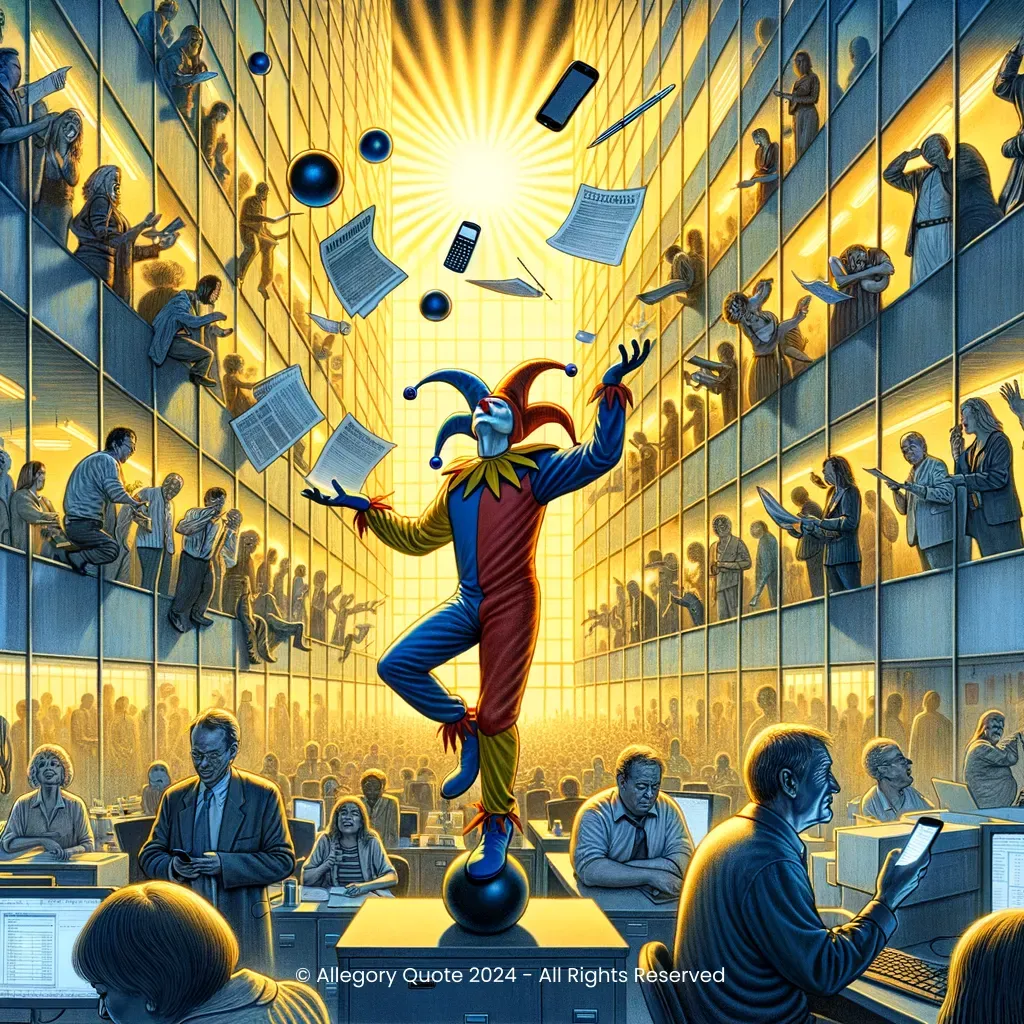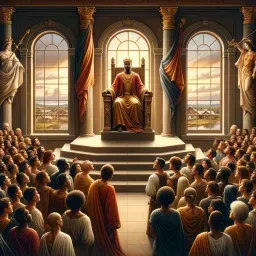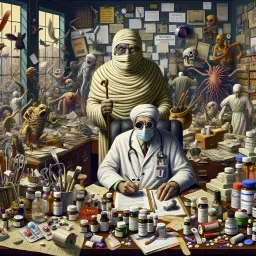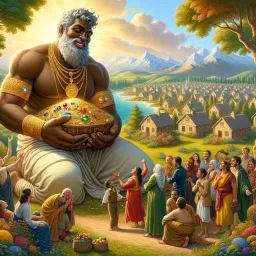Public office is the last refuge of the incompetent

0
0
0
0
- Meaning
- The phrase suggests a cynical view of public office, implying that it attracts individuals who may not possess the skills or capabilities necessary for other, more competitive roles in society. Philosophically, it relates to discussions on meritocracy and accountability within political systems. Psychologically, it might reflect a distrust in leadership, representing a broader criticism where individuals are concerned about the competence of those in power. Historically, it raises questions about governance and the qualities necessary for public service, suggesting that many in such positions may merely seek the power and prestige associated with them without the requisite qualifications.
- Allegory
- The elements in the allegorical image collectively represent the central theme of the phrase. The jester symbolizes incompetence in public office, and the frustrated citizens reflect the disillusionment many feel towards their leaders. The rays of sunlight signify the hope for better governance and leadership. The icons of knowledge represent the qualities that should ideally characterize those in public office, contrasting with the chaotic atmosphere of incompetence.
- Applicability
- This phrase can be applied in personal life as a reminder to critically assess those in authority, encouraging individuals to question the competence and effectiveness of their leaders. In everyday situations, it can be used to foster discussions around leadership qualities and the importance of accountability in both politics and personal relationships.
- Impact
- The impact of this phrase has been notable in political discourse. It has inspired discussions about the qualifications required for public office and led to movements aimed at increasing accountability in politics. The quote often resurfaces in debates about election candidates and political leadership, especially during times of political turmoil.
- Historical Context
- The phrase likely originated in the late 20th century, a time when public disillusionment with politicians was growing due to various political scandals. The context includes the rise of debates around government efficiency and public service roles, reflecting the frustrations of citizens regarding their leaders' abilities and ethics.
- Criticisms
- Critics argue that the phrase is overly simplistic and unfairly generalizes the motivations of politicians. Some contend that many individuals in public office are actually highly competent and genuinely wish to serve the public good. This critique points to the need for nuanced discussions about motivations in politics, rather than blanket statements about incompetence.
- Variations
- Variations of this phrase can be found in various cultures, often reflecting a universal skepticism about political figures. For example, similar sentiments in different languages critique leaders perceived as unqualified, demonstrating a common concern across cultures regarding the competence of authority figures.
-

The true measure of any society can be found in how it treats its most vulnerable members.
-

We have met the enemy and they are ours.
-

Do or do not. There is no try.
-

It is better to be feared than loved, if you cannot be both.
-

Don't dream it. Be it.
-

Luck is what happens when preparation meets opportunity.
-

Politics is the art of looking for trouble, finding it everywhere, diagnosing it incorrectly, and applying the wrong remedies.
-

You can't have your cake and eat it too.
-

We make a living by what we get, but we make a life by what we give.
-

I’ve got a bad feeling about this.
-

We do not inherit the Earth from our ancestors; we borrow it from our children.
No Comments